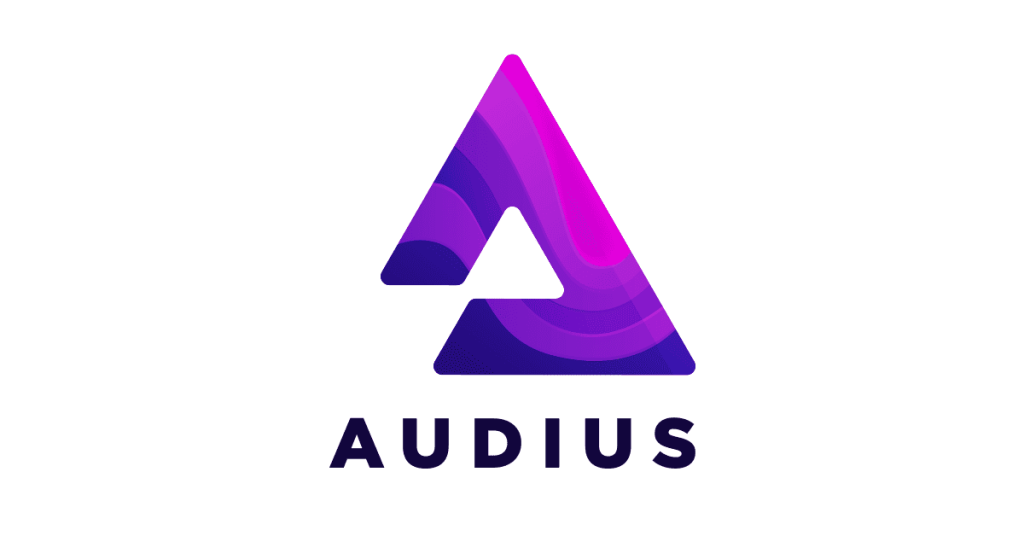The digital music industry has undergone a significant transformation in recent years, with the rise of streaming services like Spotify, Apple Music, and Pandora. However, these platforms are often criticized for their centralized nature, lack of transparency, and the relatively low royalties paid to artists. Audius, a decentralized music streaming platform built on blockchain technology, aims to address these issues and disrupt the traditional music streaming landscape. This essay delves into the world of Audius, its cryptocurrency token AUDIO, and the platform’s inner workings.
Audius: Decentralized Music Streaming Platform
Overview
Audius is a blockchain-based music streaming platform that enables artists to share their music directly with fans, bypassing traditional intermediaries and gatekeepers. Launched in 2020, the platform utilizes blockchain technology to create a decentralized, transparent, and secure ecosystem that benefits both artists and listeners. Audius empowers musicians by providing them with more control over their content, fairer compensation, and the opportunity to build a direct relationship with their fans.
How Does Audius Work?
At its core, Audius is built on a decentralized network of nodes that store and serve content. The platform utilizes a combination of blockchain technology, smart contracts, and cryptographic techniques to ensure content is secure, transparent, and resistant to censorship. The Audius ecosystem comprises various components, including:
a. Content Nodes: These nodes are responsible for storing and serving music content on the platform. They receive rewards in the form of AUDIO tokens for their contributions to the network.
b. Discovery Nodes: Discovery nodes help users search for and discover content on the platform. They maintain an index of all available content and are rewarded with AUDIO tokens for their role in the network.
c. Creator Tokens: Audius allows artists to create custom tokens representing their brand, which can be used for fan engagement, loyalty rewards, and governance in their community.
d. AUDIO Token: The native utility token of the Audius platform, AUDIO, serves various purposes, including governance, staking, and incentivizing network participants.
AUDIO Token: The Fuel of the Audius Ecosystem
The AUDIO token is an essential component of the Audius platform, providing utility and incentives for network participants. Here’s a closer look at the role of AUDIO within the Audius ecosystem:
a. Governance: AUDIO token holders can participate in the platform’s governance, proposing and voting on changes to the network’s parameters, features, and upgrades. This decentralized governance model ensures that the community has a say in the platform’s development and direction.
b. Staking: Users can stake their AUDIO tokens to support the network’s security and performance. Staking also allows users to earn rewards in the form of additional AUDIO tokens, proportionate to their stake.
c. Network Incentives: AUDIO tokens are used to incentivize content nodes, discovery nodes, and other network participants. These rewards help ensure the platform’s stability and encourage active participation in the ecosystem.
d. Artist Rewards and Fan Engagement: Artists on Audius can earn AUDIO tokens based on the popularity of their music and their engagement with fans. Additionally, artists can create custom tokens to reward their fans, foster loyalty, and facilitate deeper connections with their audience.
Benefits of Audius for Artists and Listeners
Audius offers several advantages over traditional music streaming platforms, benefiting both artists and listeners:
a. Fair Compensation: Audius provides artists with a higher percentage of revenue generated from their music, ensuring fairer compensation compared to centralized streaming platforms.
b. Transparency: The use of blockchain technology ensures transparency in royalty distributions, allowing artists to track their earnings in real-time.
c. Direct Relationships: Audius enables artists to build direct relationships with their fans, bypassing intermediaries and gatekeepers. This
empowers musicians to engage with their audience on a deeper level, fostering loyalty and community growth.
d. Censorship Resistance: As a decentralized platform, Audius is resistant to censorship, ensuring that artists have the freedom to share their music without interference from centralized authorities or institutions.
e. Ownership and Control: Artists on Audius have more control over their content, including the ability to set their own terms for licensing, distribution, and revenue sharing.
f. Discoverability: Audius provides an open platform where independent and emerging artists can showcase their work, increasing their chances of being discovered by new fans.
g. Community Governance: Listeners and artists can participate in the platform’s governance using AUDIO tokens, contributing to the development and direction of the ecosystem.
h. Incentives for Active Participation: Audius rewards active participants in the ecosystem, including artists, listeners, content nodes, and discovery nodes, with AUDIO tokens, encouraging a thriving and engaged community.
Challenges and Criticisms
Despite its innovative approach and potential benefits, Audius faces several challenges and criticisms:
a. Copyright and Legal Issues: Audius, being a decentralized platform, may face difficulties in dealing with copyright infringements and ensuring that uploaded content complies with existing copyright laws.
b. Scalability: As the platform grows, it may face challenges in maintaining high-quality streaming and content delivery due to the limitations of current blockchain technology.
c. Competition: Audius competes with established music streaming platforms like Spotify and Apple Music, which have vast user bases and resources. Gaining market share and attracting users away from these platforms may prove to be an uphill battle.
d. Mass Adoption: The success of Audius depends on its ability to attract a large number of artists and listeners. Convincing people to switch from existing platforms to a new, blockchain-based solution may be challenging.
Conclusion
Audius represents a bold attempt to disrupt the traditional music streaming industry by leveraging blockchain technology and decentralization. By providing artists with fairer compensation, greater control, and direct relationships with fans, the platform has the potential to revolutionize the way music is shared and consumed. However, Audius faces several challenges, including competition, scalability, and mass adoption, that it must overcome to succeed in the long run.
As the platform continues to develop and expand, the impact of Audius on the music industry will become more apparent. For now, it stands as a promising example of how blockchain technology can be applied to create innovative solutions that empower artists and users alike.







